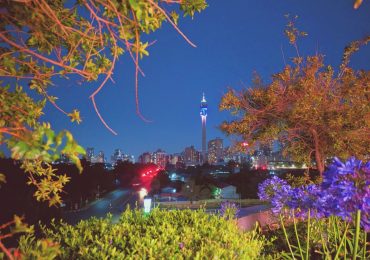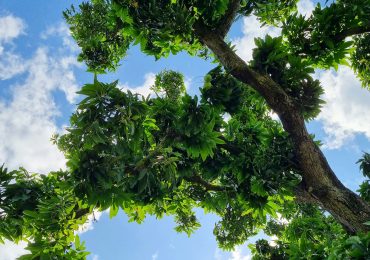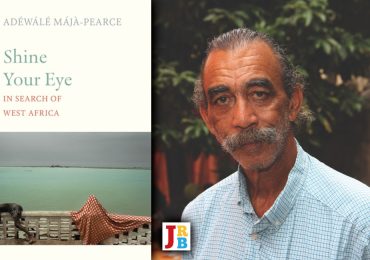The 2019 Booker Prize longlist has been announced—described by the judges as ‘bold’, ‘lyrical’, ‘very diverse’ and ‘quite wild’.
First awarded in 1969, the £50,000 prize is open to writers of any nationality, writing in English and published in the United Kingdom or Ireland.
After two years in which no African authors were chosen for the longlist, this year’s selection is a welcome change. Two Nigerian authors are included, Oyinkan Braithwaite, for My Sister, The Serial Killer, and Chigozie Obioma, for An Orchestra of Minorities, as is Bernardine Evaristo, whose work explores the African diaspora and her Nigerian heritage.
In addition, Johannesburg-born Deborah Levy has received her third nomination in a row for her novel The Man Who Saw Everything, after being shortlisted for Swimming Home in 2012 and Hot Milk in 2016.
Braithwaite’s My Sister, The Serial Killer is the only debut novel to be nominated this year, and at thirty-one she is also the youngest author on the list.
Both Braithwaite and Obioma will be in South Africa later this year for the Open Book Festival.
The pattern of United States dominance that had seemed to be emerging in the Booker, since the prize opened to writers of all citizenships in 2014, is not in evidence this year, with just one author of American heritage on the list: Lucy Ellmann, who has in fact lived in the UK since she was thirteen.
There are two former winners on the longlist this year: Canadian novelist Margaret Atwood, who is nominated for the sixth time, and Salman Rushdie, who is nominated for the third. Readers will have to wait a few weeks to see whether the honours are warranted, however, as both authors’ books will only be published in September.
Ian McEwan, Mark Haddon and Ali Smith, whose novels this year were all well received, are notable omissions from the longlist.
2019 Booker Prize longlist, or Booker ‘Dozen’
Author (country/territory), title (imprint)
- Margaret Atwood (Canada), The Testaments (Vintage, Chatto & Windus)
- Kevin Barry (Ireland), Night Boat to Tangier (Canongate Books)
- Oyinkan Braithwaite (UK/Nigeria), My Sister, The Serial Killer (Atlantic Books)
- Lucy Ellmann (USA/UK), Ducks, Newburyport (Galley Beggar Press)
- Bernardine Evaristo (UK), Girl, Woman, Other (Hamish Hamilton)
- John Lanchester (UK), The Wall (Faber & Faber)
- Deborah Levy (UK), The Man Who Saw Everything (Hamish Hamilton)
- Valeria Luiselli (Mexico/Italy), Lost Children Archive (4th Estate)
- Chigozie Obioma (Nigeria), An Orchestra of Minorities (Little Brown)
- Max Porter (UK), Lanny (Faber & Faber)
- Salman Rushdie (UK/India), Quichotte (Jonathan Cape)
- Elif Shafak (UK/Turkey), 10 Minutes 38 Seconds in This Strange World (Viking)
- Jeanette Winterson (UK), Frankissstein (Jonathan Cape)
This year’s Booker longlist was chosen from 151 novels by a panel of five judges: founder and director of Hay Festival Peter Florence (Chair); former fiction publisher and editor Liz Calder; novelist, essayist and filmmaker Xiaolu Guo; writer, broadcaster and former barrister Afua Hirsch; and concert pianist, conductor and composer Joanna MacGregor.
‘This longlist is very diverse,’ Guo says. ‘Each book has an individual, singular voice, very strong. Some are very interior, some are very extravagant.’
MacGregor says: ‘All the writers we’ve chosen to be on this longlist have got very energetic and very diverse voices, and they come from many different backgrounds.
‘They are quite bold and quite lyrical, and some of them are actually quite wild.’
The shortlist of six books will be announced on Tuesday, 3 September 2019. The shortlisted authors each receive £2,500 (about R43,000) and a specially bound edition of their book.
The winner will be announced on Monday, 14 October at an awards ceremony at London’s Guildhall. The winner of the 2019 Booker Prize receives £50,000 (about R865,000).
The Booker Prize is known for its commercial boost. In the week following the announcement of last year’s winner, Milkman by Anna Burns, sales of the book increased by 880 per cent, from 963 in the week prior to the announcement to 9,446 in the week following, and then by a further 99 per cent (9,446 to 18,786) the following week.
Milkman is now sold in nearly forty languages, both in Europe and throughout Asia. The total number of copies of Milkman sold, across all formats, is currently 546,500, and Burns is in the process of negotiating a film deal.





